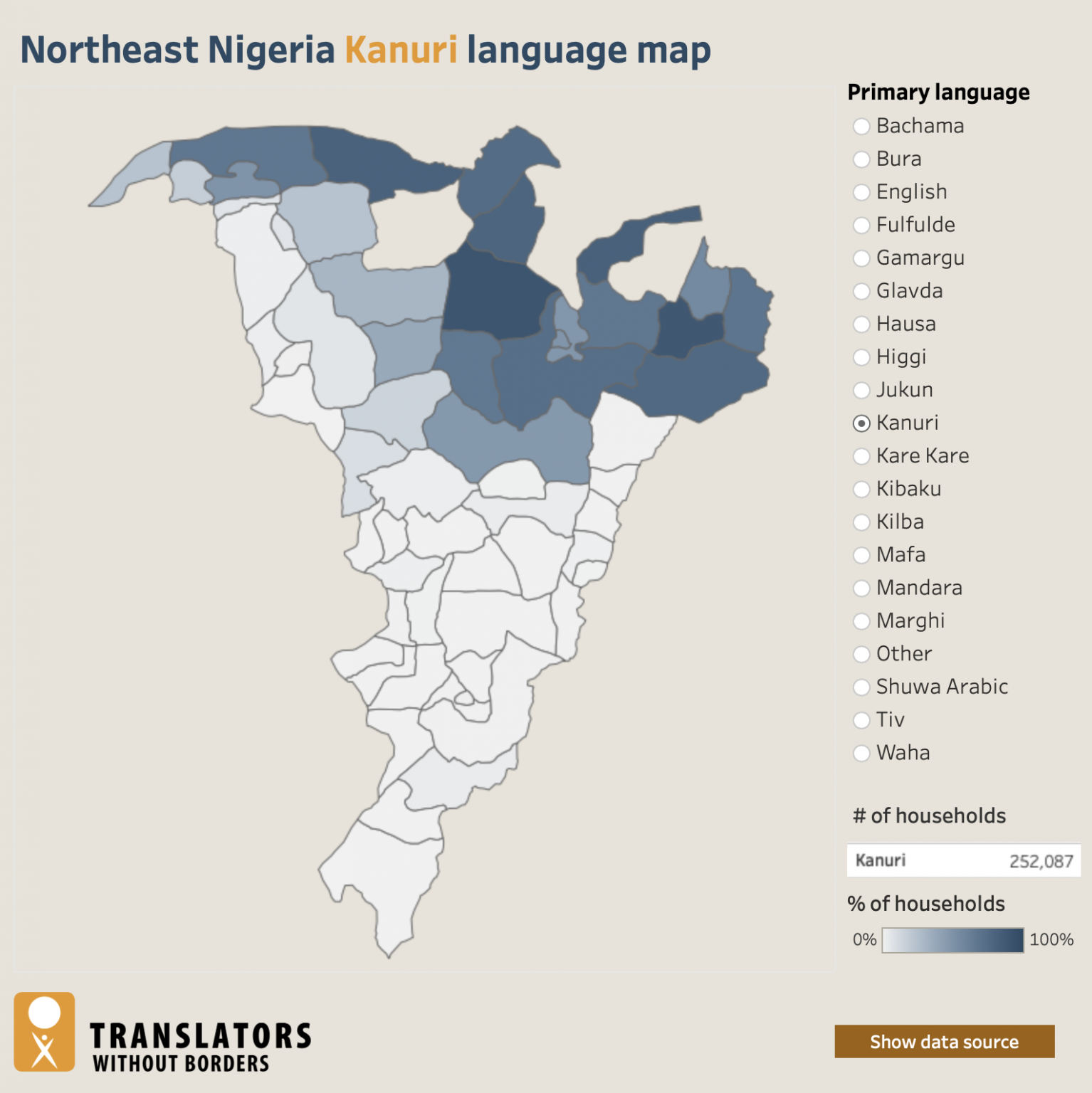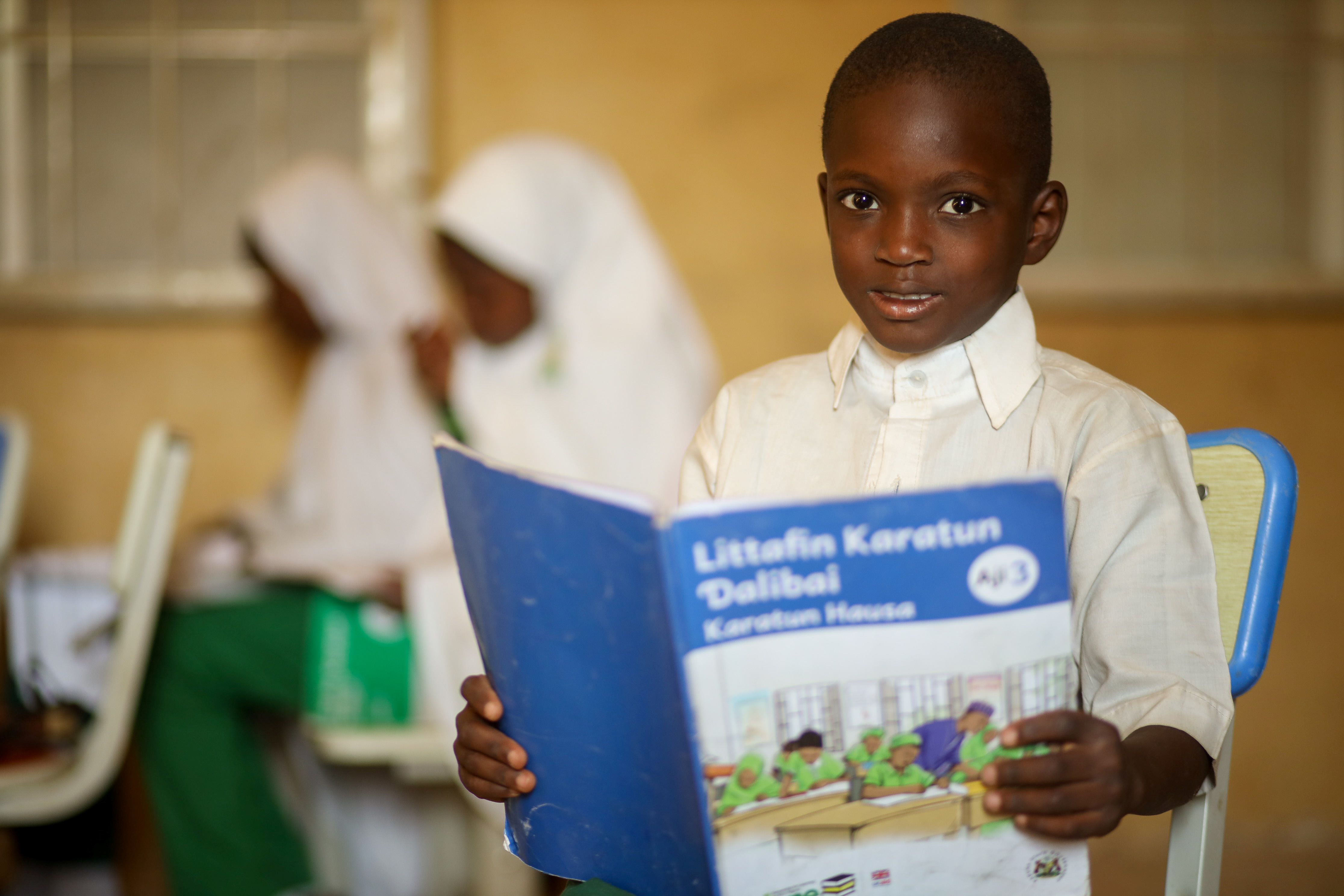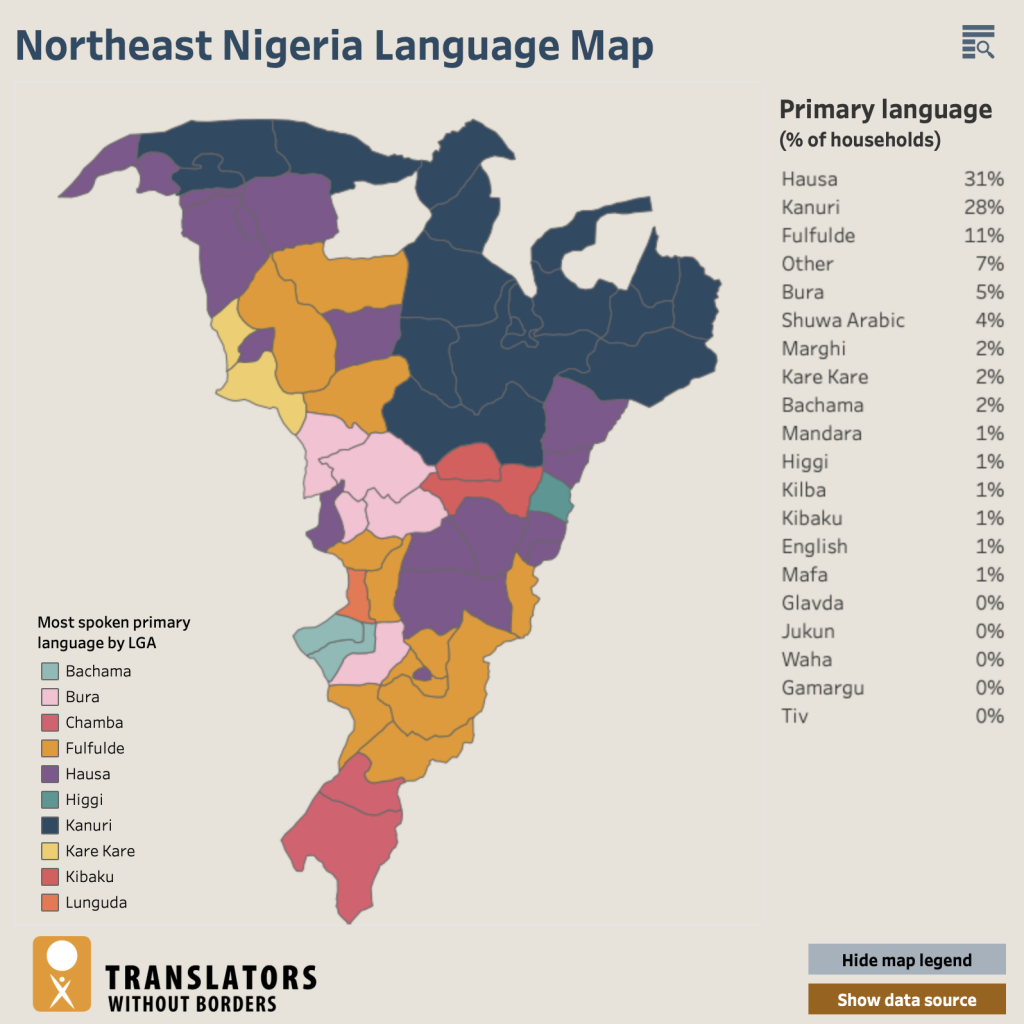When we talk about a primary language, especially in a place like Nigeria, it's almost like we're trying to figure out what "first" truly means in many different ways. Is it about the very first sounds a child hears, the earliest words they put together? Or is it something else entirely, perhaps more about what matters most in their daily life, the language that holds the most weight in their world? It's a question that gets you thinking about how we use words like "primary" and what they really convey when applied to something as central as how people communicate.
You see, the idea of "primary" can mean quite a few things, and so it's a bit like looking at a word through different lenses. It can mean something that comes first in a sequence, like the very start of a journey. Or, it might point to something that is more important than anything else, something that stands out as having the most significance. Then there's the thought of it being something for the teaching of young children, a foundational way of learning that sets the stage for everything else. So, when we talk about a primary language, especially in the context of a place with many tongues, we are actually exploring these different layers of meaning, one by one, to get a clearer picture.
In short, figuring out what a primary language means, particularly for Nigeria, asks us to consider all these angles. It's not just about picking one definition and sticking with it; it's about seeing how each sense of "primary" helps us appreciate the many ways a language can be considered central. We're looking at what it means to be first, to be most important, and to be foundational for how people learn and connect. So, in some respects, it's a deep dive into the very idea of what makes a language truly significant for a community.
- Turning Avast Off
- Natalie Dyer Age
- Who Is Kyla Pratts Father
- Joe Rogan Oldest Kid
- Alicia Keys Life Biography
Table of Contents
- What Does "Primary" Really Mean for Language?
- "First in Order" - A Look at Primary Language Nigeria
- Is "Primary" About Importance in Primary Language Nigeria?
- How "Primary" Shapes Early Learning for Primary Language Nigeria
- When is a Language "Primary" - A Deeper Think?
- Understanding "Primary" in Language Use for Primary Language Nigeria
- What About "Primary" and Choosing a Language in Primary Language Nigeria?
- The Concept of "Primary" in Everyday Language for Primary Language Nigeria
What Does "Primary" Really Mean for Language?
When we talk about something being "primary," it often points to it being the very first thing in a series, or perhaps the one that came into being earliest. So, what does this tell us about a primary language, especially when we think about a place like Nigeria? It suggests we're considering the language that might have appeared first in a certain area, or the one that children typically encounter right at the start of their lives. It's about that initial spark, that first contact with words and sounds that shape how someone sees the world. This first encounter, you know, it can really set the stage for everything that follows in a person's ability to communicate. It's a foundational element, arguably, for all future linguistic experiences. We are, in a way, looking at the very beginning of a linguistic journey, that initial step into the world of expression and connection. This idea of "first" can be quite profound, as it speaks to the very origins of how individuals and groups come to understand and share their thoughts. It's almost like the starting point on a map, showing where a particular way of speaking begins its story. This initial language might, for example, be the one where a person learns their first lullabies, or the one in which they hear their earliest stories. It is, to be honest, a very personal kind of first, deeply woven into the fabric of early life. This first language, or a primary one in this sense, helps shape a person's earliest ideas and feelings, creating a direct link to their earliest memories and experiences. It's the language that forms the initial framework for how thoughts are built and expressed, a truly fundamental part of someone's early development.
"First in Order" - A Look at Primary Language Nigeria
Considering "first in order of time or development" for a primary language in Nigeria makes us ponder the very beginning of a person's interaction with spoken words. It's about the language a child learns as their very first way to express themselves, the one they pick up naturally from their immediate surroundings. This isn't necessarily about which language is oldest in a historical sense, but rather which one serves as the initial building block for an individual's communication skills. For example, it might be the language spoken in their home, the one their parents or caregivers use to soothe them, teach them, and connect with them during their earliest years. This first language, you know, often becomes the lens through which they first experience and make sense of the world around them. It's the language that helps them form their earliest thoughts and feelings, creating a deep, lasting bond with their early life experiences. It shapes their initial grasp of how sounds become meanings, and how those meanings help them interact with others. This idea of "first in order" also brings up the way a language might develop within a community, becoming the established starting point for new generations. It's quite interesting to think about how this initial linguistic input, arguably, sets the stage for all future language learning and cultural understanding. So, when we talk about a primary language for Nigeria in this sense, we're considering that very first, foundational layer of communication that shapes a person's earliest world.
Is "Primary" About Importance in Primary Language Nigeria?
Beyond simply being the first, the word "primary" often carries the weight of being "more important than anything else." So, when we consider a primary language for Nigeria, we might also be asking which language holds the most significance, the one that truly matters above all others in daily life. This isn't just about chronology; it's about practical use and influence. Is it the language that people use for the most serious conversations, for conducting business, or for connecting with a wider group of people? It's a very practical way of looking at things, really. This kind of primary language, you know, might be the one that opens doors to more opportunities, or the one that allows people from different backgrounds to understand each other in a common space. It's the language that serves as a bridge, perhaps, between various communities, making it indispensable for broader communication. This importance can stem from its role in official settings, in education, or simply because it is widely understood and used across different regions. So, in some respects, a language becomes "primary" in this sense because of its utility and its reach, because it helps people get things done and connect on a larger scale. It's the language that holds significant sway, shaping how society functions and how individuals interact within that framework. This view of primary is less about personal history and more about collective necessity, about what truly serves the greater good for communication.
- Marbella Atl%C3%A9tico Madrid
- Who Is Tallest Actor
- Milo Manheim Young
- Curiosity Quotations
- Anime For Gays
How "Primary" Shapes Early Learning for Primary Language Nigeria
The concept of "primary" also touches upon what is "of or for the teaching of young children." This means a primary language, in this context, is the one used as the fundamental tool for education in early years. It's the language in which children learn to read, write, and grasp basic concepts in school. This aspect of "primary" is incredibly important because it shapes how future generations acquire knowledge and skills. It's the language that lays the groundwork for all academic pursuits, providing the initial structure for formal learning. You see, if a child learns in a language that is deeply familiar to them from home, it can make the learning process much smoother and more effective. This connection between home language and school language is, frankly, quite a big deal for a child's early development. It helps them build confidence and feel comfortable in their learning environment. This primary language, therefore, is not just a tool for communication; it becomes the vehicle for intellectual growth and understanding during those crucial formative years. It’s the language through which they first encounter stories, numbers, and the world of formal education. So, when we talk about a primary language for Nigeria from this angle, we are considering its role as the backbone of early childhood education, the language that sets children on their path to lifelong learning. It's about providing a strong foundation, which is, in fact, quite vital for future success.
When is a Language "Primary" - A Deeper Think?
The definitions of "primary" also include being "first in importance, degree, rank, etc." and "first in position or time, as in a series." These definitions really push us to think more deeply about what makes a language truly primary. Is it about its standing among other languages, perhaps holding a higher rank due to its widespread use or its historical significance? Or is it simply about being the initial language encountered in a sequence of learning or exposure? This dual nature of "primary" – both first and most important – suggests that a language can be primary for different reasons, depending on the context. For instance, a language might be primary because it is the most widely spoken, giving it a high degree of importance in terms of communication reach. Or, it could be primary because it is the first language a person acquires, making it foundational to their personal identity and thought processes. It's a bit like having two different ways to measure something, both valid but for different purposes. So, when we consider a primary language for Nigeria, we are, in a way, weighing these different aspects of "firstness" and "importance." We are asking whether it is primary because it is chronologically first, or because it holds a position of significant influence. This distinction is quite crucial for understanding the various roles a language can play within a society. It helps us appreciate that "primary" isn't a single, simple concept but rather a collection of related ideas about precedence and significance.
Understanding "Primary" in Language Use for Primary Language Nigeria
To truly grasp what "primary" means in the context of language use for Nigeria, we have to look at how it applies to daily interactions. Is it the language that people naturally turn to for everyday conversations, for expressing emotions, or for telling stories within their families and close communities? This kind of primary language is often the one used without much thought, the one that feels most comfortable and natural for expressing a wide range of human experiences. It's the language that flows effortlessly, you know, in casual chats and heartfelt discussions. This spontaneous use often indicates a deep level of familiarity and comfort, suggesting that the language is truly ingrained in a person's way of thinking and feeling. It's not just a tool for conveying information; it's a part of their identity and how they connect with the world around them. This aspect of "primary" speaks to the organic, lived experience of language, rather than its formal status or its historical origins. It's about the language that is simply "there" for people, the one they rely on for most of their communication needs. So, when we think about a primary language for Nigeria from this perspective, we are considering which language serves as the go-to for the everyday rhythm of life, the one that truly feels like home in terms of expression. This use, in fact, often highlights a language's true vitality within a community.
What About "Primary" and Choosing a Language in Primary Language Nigeria?
The idea of "primary" also pops up in discussions about elections, where "primary elections or primaries are elections held to determine which candidates will run in an upcoming general election." While this might seem far removed from language, it actually offers an interesting parallel for thinking about how a language becomes "primary." Just as a primary election selects the top contender from a group, a language might become primary because it is, in a way, "selected" for certain roles or functions within a society. This "selection" isn't always a formal vote, of course, but it can be a gradual process where one language naturally emerges as the preferred choice for broader communication, for official matters, or for connecting diverse groups. It's a bit like a language gaining momentum and becoming the front-runner for certain social purposes. This doesn't mean other languages disappear, but rather that one takes on a leading role in specific contexts. So, when we think about a primary language for Nigeria through this lens, we are considering how one language might come to dominate certain public or formal spheres, becoming the default option for important interactions. This "selection" makes it primary in a functional sense, allowing it to serve a wider population effectively. It's about a language winning out, so to speak, in the competition for widespread use and acceptance in particular areas of life. This perspective, honestly, gives us another way to think about how a language comes to hold such a central place.
The Concept of "Primary" in Everyday Language for Primary Language Nigeria
Ultimately, the concept of "primary" for a language in Nigeria is a blend of all these meanings. It's not just about what's first, or what's most important, or what's used for teaching children, or what's "chosen" for broader purposes. It's about how all these aspects weave together to create a complex picture of a language's role. A language can be primary for an individual because it's their first and most cherished tongue. It can be primary for a community because it serves as the main way they communicate and connect. It can also be primary in a larger sense because it holds a significant position in education or public life. So, when we consider the idea of a primary language for Nigeria, we are really exploring the many ways a language can be fundamental. It's about understanding that "primary" is a word with many layers, each adding to our appreciation of a language's true significance. It’s a word that helps us understand the deep connections between language, personal identity, community life, and societal function. This multifaceted view, you know, helps us see the full scope of what a "primary" language truly means in a dynamic and diverse setting.
- Rappers From The 80s
- Country Artists Top 100
- Vatican Room Of Tears
- What Did Rio Da Yung Og Do
- Rockstar Pina Colada



Detail Author:
- Name : Justen Howell
- Username : kellen.kovacek
- Email : jakubowski.verlie@champlin.org
- Birthdate : 1987-10-16
- Address : 970 Lulu Ferry New Cora, OR 62706-1184
- Phone : (276) 716-1452
- Company : Hirthe-Tromp
- Job : Telecommunications Line Installer
- Bio : Omnis dolor quas ratione dicta consequatur vel alias. Maxime voluptatum sequi necessitatibus dolorum. Voluptas sit et neque suscipit. Laborum eveniet aut aut optio est.
Socials
instagram:
- url : https://instagram.com/skemmer
- username : skemmer
- bio : Maiores consequuntur sed eos deleniti. Officiis quam tenetur veniam quos.
- followers : 4908
- following : 85
tiktok:
- url : https://tiktok.com/@spencer_official
- username : spencer_official
- bio : Explicabo quia vel ea sunt. Provident laboriosam omnis tenetur.
- followers : 1496
- following : 2427
linkedin:
- url : https://linkedin.com/in/skemmer
- username : skemmer
- bio : Recusandae corrupti neque ipsa et voluptas.
- followers : 3392
- following : 2574
facebook:
- url : https://facebook.com/kemmers
- username : kemmers
- bio : Et aperiam adipisci quo et est excepturi aut rerum.
- followers : 6949
- following : 1541
twitter:
- url : https://twitter.com/spencer.kemmer
- username : spencer.kemmer
- bio : Omnis non qui soluta expedita ut molestias. Eos sed et soluta molestiae officia adipisci.
- followers : 5904
- following : 2372
